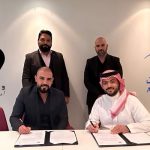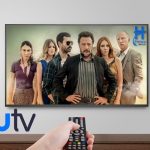Ninetnine, a content distribution company helmed by Samir Zehani and Adel Hamla, has successfully catered to North African and Arabic audiences in France and Europe, with strategically designed TV packages that have raked in more than 100,000 subscribers. The duo, looking to replicate that success in other markets, signed a massive content distribution deal in the US in July and, more recently, with MBC Group in Dubai – spotlighting them as disrupters in the Arabic content space. In an exclusive interview with Vijaya Cherian, Ninetnine’s co-founders share their story, strategy, new deals and 2022 plans.
We hear that you’ve just signed a big deal with MBC Group for Europe?
Samir Zehani: Indeed, we are very proud to announce that Ninetnine is the exclusive distribution partner of MBC channels in Europe via various platforms including IPTV, OTT and the cable networks. Building on our success in creating value for Arabic content abroad, MBC trusted our vision and will join the biggest Arabic TV bouquet in the world, le Bouquet Maghreb, that we manage with our partner Thema/Canal+.
When did you launch Ninetnine, and how does le Bouquet Maghreb fit into your journey?
Adel Hamla: Ninetnine was launched three years ago with the objective of better distributing ethnic content, mainly Arabic content. After long experiences in the corporate media world working for the likes of Orange Group and MBC, we wanted to bridge gaps that we have seen over the years in the distribution landscape. Our vision is to simply entertain people everywhere. We are passionate about what we do.
So we started with Arabic content by disrupting the existing set-up. We noticed, for instance, that there were no good TV bouquets that catered to the Maghreb community in Europe, which is home to approximately 15m North Africans (4m households), of which 8m live in France alone. With a good understanding of Arab audiences both on home ground and in Europe, and backed by strong data analytics, we set out to address the entertainment needs of that segment.
We first did this with Orange, and then joined forces with Thema/Canal+ Group in 2019 to create the biggest Arabic TV bouquet in the world, le Bouquet Maghreb. In both cases, we succeeded in attracting 100k-plus subscribers to their packages and brought in a whole new segment of viewers to their platforms.

Why does le Bouquet Maghreb suit Arabic content owners looking to monetise their content?
Adel Hamla: If we look closer at the European pay-TV platforms filtered by country, we understand that monetising content is not an easy task. IPTV is the norm in France, while DTH and cable may be for Germany, the UK or Italy. All of those have been challenged by cord-cutting and exploding OTT consumption. We started with the market we know best: France. Our partner Thema/ Canal+ contracted us to reposition their previous Arabic bouquet that was poorly performing, and they were thinking of shutting it down. It was expensive and did not really correspond to what the customers wanted to watch.
We revisited that package for a new audience, sourced new channels, rebranded it as le Bouquet Maghreb, dropped a tier, brought down the price and designed the go-to-market and communication strategy. Today, for €4.99, we have 15 TV channels and a second tier at €7.99 called le Bouquet Maghreb+ offering 21 channels and VOD content. This Ramadan, that bouquet garnered more than 120,000 monthly paying subscribers in France only. This success did not go unnoticed by content owners in the Arab world, who are now contacting us to help export their products to these markets.
How disruptive is your approach? Can’t the Arab TV channels distribute their content themselves?
Samir Zehani: You are right. Everybody can distribute their content themselves, and many do. Are they making money? Do they have enough audience? Are they covering their technical cost? Their marketing expenditures? The real answer is no, but only a few will admit to this in our industry.
The Ninetnine approach is to cut with past practices and look at the future of content distribution. Data is everywhere for those who know how to get it and, most importantly, know how to analyse it to create business opportunities. We have mapped the European continent by TV technology, type of Arab diasporas, TV consumption behaviours, price sensitivity and what is the most efficient call to action with each diaspora. We have also established local partnerships in each country.
To us, the concept of one-size-fits-all content does not work in the Arab world. Actually, Pan-Arab content is no longer the standard. The Arab world is amazingly rich with different cultures, languages, accents, and we have areas like the GCC, the Maghreb, the Levant, for example, that consume TV differently. The audience has fragmented and gone to local content. Big groups like MBC Group understood this and launched MBC 5 for North Africa, or MBC Egypt and MBC Iraq for those specific countries. In the era of Netflix, Amazon, Disney+, etc, we need a wise approach to bring the premium content closer to its relevant audiences and shout about it.
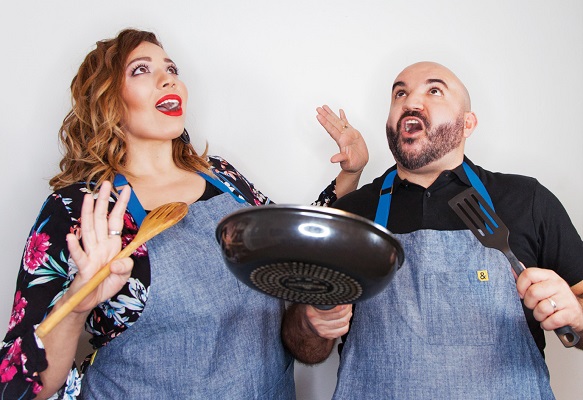
As you talk about GAFA (Google, Amazon, Facebook and Apple), do you work with them or do you favour traditional TV distribution?
Samir Zehani: We adopt a holistic and practical approach. Let’s take France as an example. 85% of TV consumption is through IPTV; the country has pioneered the triple-play concept (TV, internet, phone). The four telecom operators (Free Telecom, Orange, SFR and Bouygues) are mainly the go-to platforms. Big groups like Netflix, Disney+ and Canal+ have sealed deals with them. We did as well. If my audience is there, then I should be there too.
Do we do it the traditional way, though? The answer is no. Adel and I are big believers in original productions. In 2019, our first co-production was a 13-episode TV show called The Travelling Lovers, with two social media superstars, that aired on Samira TV. The TV channel monetised it in its local market via advertising, while we monetised it abroad over VOD and pay-TV. We noticed an immediate outcome: over 5,000 subscribers on the day of the release of our first episode. Amazon Prime was interested to carry the show. Personalisation of content is the way forward.
Are you going to produce your own Arabic content?
Adel Hamla: We have established a network of trusted partners in that space. We always explore ways of creating value for our bouquet, creating engagement and boosting loyalty. Productions and co-productions are a great way to bring people to your platform. The example of The Travelling Lovers was a great learning curve for us. For the first time, we proved that there is an audience bridge between the Arab world and the Arab diaspora, especially the young generation who speak less and less Arabic. We wrote a script that appeals to North Africans regardless of their geographic location. Instead of going with tier-one digital influencers, we chose tier-two digital influencers who do not have millions but engaged with hundreds of thousands of niche followers who were within our targeted community. For this, we did a surgical search to find the right people. People subscribed just to watch that one show that featured their favourite influencers.
We have done two additional co-productions, and if it weren’t for Covid, we would have some more ready by now. But before next Ramadan, we should have six more productions in the bag. We will announce a new concept of a TV show by the end of this year.
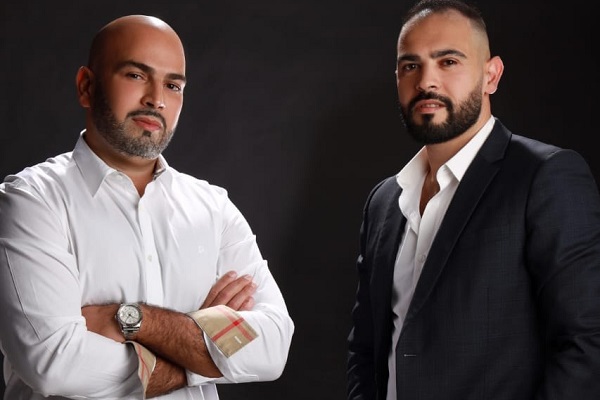
Are you considering distribution methods other than pay-TV for Arabic content?
Samir Zehani: Monetisation can have different forms, and this is why data is crucial while looking for opportunities. We work with the content owners to understand how relevant their content is for different markets. Once we do this, the second part is aggregating and distributing that content. It is good to have the right content, but creating the right value proposition for the customer and your distribution strategy – which platform, at what price and what marketing, to increase your subscription – are equally significant. We have signed a deal recently with Dish Network in the US to distribute 10 premium channels on Sling TV.
Adel Hamla: The US currently has around 800,000 to a million North Africans with different generations, and we couldn’t see us going beyond perhaps 10k to 15k subscribers if we took the pay-TV approach. That wouldn’t really turn a profit. Premium Arabic content was always distributed in the pay-TV space abroad, while consumption within MENA is pretty much free-to-air. When this content is exported, it is not available in the US or Europe on FTA and becomes a way for these channels to monetise their content abroad.
We disrupted in this space by trying the free ad-supported TV (FAST) service to enhance direct-to-consumer (D2C) reach and boost engagement. Digital advertising revenues are booming in North America, so the context made it easy for us to convince our partner channels to go with this model. We spoke to some popular channels like Nessma TV and Samira TV who were not distributed in the US. Sling was on board with the idea, and we took the best of the channels to them. We launched early July; it’s been only three months now, but it has been successful and a win-win for everyone. This model has worked so well that more channels now want to come on board.
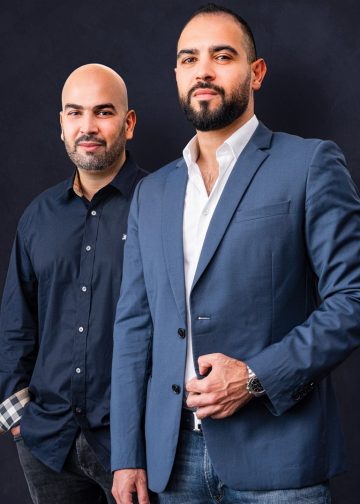
audience data and analytics are key
to creating a successful package.
When you reach a deal with a TV platform like Dish or Canal+, how do you help them communicate that with their subscribers?
Samir Zehani: The data we have in the European market is very unique and purely based on years of expertise, but it is something we can replicate in other markets like the US or Canada – it is a combination of data intelligence we have acquired over the years but also something we know as North Africans who grew up in Europe. Customer journey and user experience are very important to understand what marketing and call to action to communicate. One of the key findings is that the people who watch their programmes are not necessarily the ones paying for them. In some cases, we would have marketing campaigns that said “Your mum will love it”, and that’s how specific our data was. We know our viewers to the point where we know who is paying at home and who is watching the programmes. We have been very precise and thorough with how we have managed our packages. At different points in time, we would promote the same content but in different ways to each member of the family.
What new markets are you targeting? Is there room for growth?
Adel Hamla: We are not resting on our laurels. There is so much to do. As said, there are 8m North Africans in just France and our penetration is only at 10%, and we are the leader there. So, are we satisfied? No, although we enjoy two-digit growth every year. We want to identify new content (linear, VOD, digital) that is relevant to the different diaspora in different parts of Europe and tailor-make packages for each country. Bespoke packages are important, because data shows that the Arab diaspora is spread across the European continent in different concentrations.
Samir Zehani: Despite the challenges we see in the pay-TV market and cord-cutting times, our TV bouquets continue to perform and we see so much room to grow. Our challenge now is to make our content known to more people; our enemy is the lack of awareness. If you are the leader with only 10% penetration, there is room for a further 20-30% market penetration. For this, we are accelerating our B2C launch. We are making more targeted campaigns to ensure it appeals to our subscribers. Marketing, digital and production is where we need to accelerate, and we won’t stop until we have reached every market on the map.











































































